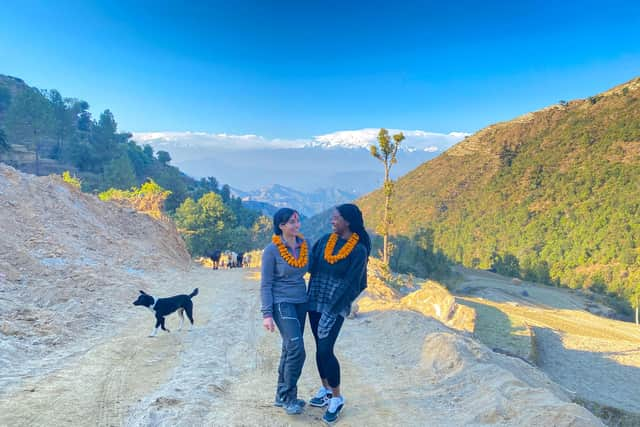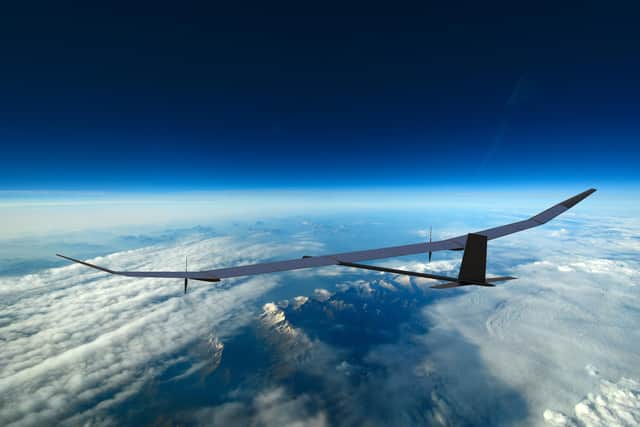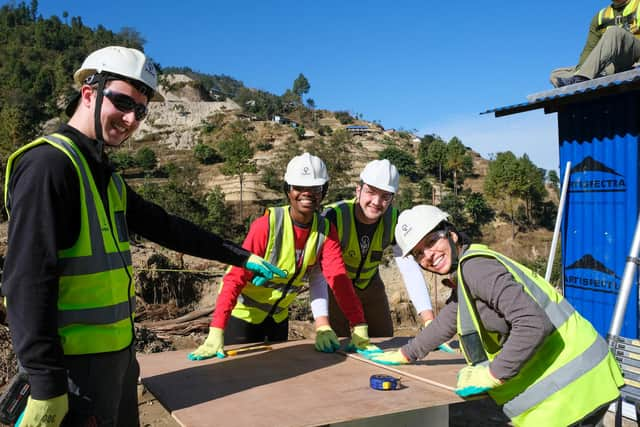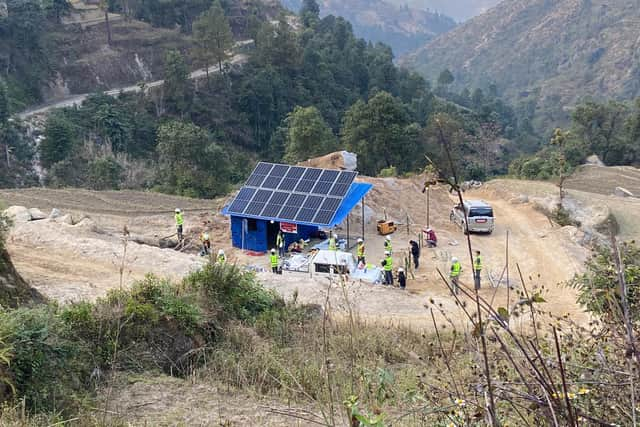“This was my purpose in life”: Budding Lancashire engineer talks BAE Systems’ solar tech, transforming a Nepalese village, and female empowerment
and live on Freeview channel 276
A talented maths and physics student at school, she was awarded the Arkwright Scholarship sponsored by the RAF in Year 11, investing in a few courses and, naturally, a Meccano robot.
“I always found that stuff really cool - the robot actually became the school mascot!” says Khadijah, who now works for BAE Systems at Warton. “Given I was good at maths and physics, it made sense to go down the engineering route, but I was also very creative - even though I didn’t do a design subject, I was always tinkering with things.
Advertisement
Hide AdAdvertisement
Hide Ad“I applied to go to uni and got offered places at some top universities, but - despite it not really being something other people were doing in my school - I went ahead and applied for the BAE apprenticeship,” she adds. “At the time, I wasn’t 100% sure I was making the right decision, but now I’m so happy with my choices.


“I followed a passion - I chose aerospace out of all the disciplines because I just liked planes, so that was a no-brainer - and it worked out.”
An engineering apprentice at BAE Systems, Khadijah is currently part of the maintenance team, which develops tech to support aircraft, whilst also doing a degree in aerospace engineering through the company and accredited by Lancaster University. As she says, this is the ideal set up for her.
“I’ve got the chance to get my degree, have no student debt, to earn while I learn, and I’m now in my fifth year, so I’ve got half-a-decade of engineering experience, too,” says Khadijah. “It feels almost surreal to be a part of a company like BAE - I’ve done stuff on systems engineering, virtual reality, and on the PHASA-35 down south, which involved avionics, electrical structures, and solar power.
Advertisement
Hide AdAdvertisement
Hide Ad“I’ve had experience across the range of the engineering lifecycle, which has been good,” she adds. “That broadening of my horizons has been really positive.”


It was Khadijah’s work on the PHASA-35, a novel ultra-lightweight solar-electric High Altitude Long Endurance (HALE) Unmanned Aerial System (UAS) which can stay in the air for up to a year at a time to provide an alternative to products such as satellites, which spurred her on to even greater heights.
Having become one of the first two apprentices to be granted a £5,000 Engineering Leaders Scholarship from the Royal Academy of Engineering in 2020, she used the funding to take part in a project installing a solar-powered grinding mill in a remote community in Nepal. Armed with the expertise gained during the PHASA-35 project, Khadijah relished the opportunity.
Part of The GREEN Program, a US-based initiative designed to educate and empower future sustainability leaders, the project in Nepal saw Khadijah use her engineering skills to help a community on the other side of the globe on what she soon realised was a truly one-in-a-lifetime trip.
Advertisement
Hide AdAdvertisement
Hide Ad“The GREEN Program’s brand is essentially to empower and educate through travel to create future sustainability leaders, and they had a load of trips to Nepal, Peru, Japan, Iceland,” says Khadijah. “I decided to apply for Nepal because they incorporated a more cultural element: being with villagers and living in the village itself.


“I literally applied, got a confirmation, and then just hopped on a plane!” she adds with a laugh. “It was really daunting - I was travelling on my own during Covid and had to do all the PCR tests - but it was also really exciting. I arrived in Kathmandu and it was just plain sailing.”
After spending time at Kathmandu University learning about the ethics of sustainable development with a collection of other like-minded engineers involved in the project, Khadijah and the group then embarked on their trip to one of the country’s more far-flung and rural locales.
“I met loads of like-minded individuals from places like Denmark, Japan, the US, Canada, and the team from Nepal whilst studying microgrid systems for rural development in Kathmandu,” explains Khadijah. “We also got the chance to do things like visit a monkey temple and do a yoga session, so we really acclimatised and learned the culture. It was amazing.
Advertisement
Hide AdAdvertisement
Hide Ad“After that, we packed all our stuff up and went off-road to this village in the Dhading District called Dharmechaur, which isn’t even recognised on Google Maps because of how remote it is,” she adds. “We arrived and were welcomed with tea and garlands and then we got our brief and got straight to it the next day.”


Providing the community with not only the ability to grind rice but with a sustainable and much-needed source of income for the village, the mill project was a huge success. The team was able to successfully install the solar panel tech, prompting what Khadijah has called an ‘overwhelming and humbling’ reaction from the local community.
“We were working in teams and rotated jobs whilst also living with the locals, who were really interested in what we were doing,” she says. “It was one of the best experiences of my life because the people made it and being with others who are passionate about sustainability and about integrating with different cultures was amazing. I even extended my stay because I loved it so much!
“The fact that we didn’t speak the same language didn’t stop us,” she adds of the project, which met the UN’s sustainable development goals. “It hit me at that moment: sustainability really does have no boundaries, whether that’s geographical, cultural, or technological. And a trip like this has renewed my passion for sustainability.
Advertisement
Hide AdAdvertisement
Hide Ad“It was heartwarming to see the impact of your work first-hand, too,” Khadijah continues. “Everyone got stuck in and helped with whatever was needed and we really connected with the locals, which was lovely.”
Another front on which the team had a great deal of success was inspiring local women. Thrilled that the initiative had empowered a largely female-based community to learn the skills needed to strengthen their local economy, Khadijah said that one girl even came up to her and told her that, while she didn’t understand the tech yet, she wanted to learn and that she wanted to become an engineer, too.
“That made me feel like this was my purpose in life,” says Khadijah. “When I first started in engineering, I noticed how male-dominated it is and, while I don’t feel it as much now, people coming in will feel it. That’s why it’s important to have visible female role models: you can be what you can’t see.
“To anyone I’d say, if you get opportunities to have global experiences, don’t think twice: take them,” she adds. “It’s given me so much.”